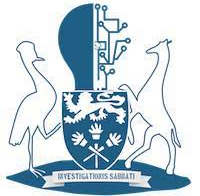Aviation is a complex and highly regulated industry that requires precise attention to detail in order to ensure safety for all passengers. Pilots, aircraft mechanics, and air traffic controllers must adhere to strict guidelines and procedures to prevent accidents and maintain a high level of safety.
Unfortunately, even experienced aviation professionals can make mistakes that can have disastrous consequences. In this article, we will discuss some common mistakes to avoid in aviation, with a particular focus on pilots. By being aware of these common pitfalls, pilots can take steps to mitigate risks and improve overall safety in the aviation industry.
1. Neglecting pre-flight checks: One of the most important responsibilities of a pilot is to conduct thorough pre-flight checks before taking off. Neglecting this critical step can lead to mechanical failures or other issues that could jeopardize the safety of the flight. Pilots should always follow a checklist and ensure that all systems are functioning properly before departing.
2. Flying into dangerous weather conditions: Weather can be unpredictable and dangerous, especially for small aircraft. Pilots should always check weather reports before flying and be prepared to alter their route or delay their flight if conditions are not safe. Flying into thunderstorms, icing conditions, or strong winds can be extremely hazardous and should be avoided at all costs.
3. Failing to communicate effectively: Communication is key in aviation, both with air traffic controllers and other aircraft in the vicinity. Pilots should always adhere to Aviator proper radio procedures and clearly communicate their intentions and actions to ensure that everyone is aware of their presence and movements. Failing to communicate effectively can lead to misunderstandings and potentially dangerous situations.
4. Ignoring fatigue: Pilots are subject to strict regulations regarding rest and fatigue management, but it is ultimately their responsibility to ensure they are fit to fly. Ignoring signs of fatigue or flying long hours without adequate rest can impair judgment and reaction times, increasing the risk of accidents. Pilots should prioritize their well-being and be honest with themselves about their readiness to fly.
5. Becoming complacent: Aviation is a highly technical and demanding field that requires constant vigilance and attention to detail. Pilots should never become complacent in their duties or routines, as even small oversights can have serious consequences. It is important for pilots to stay engaged and proactive in their training and professional development to maintain high standards of safety.
In conclusion, avoiding common mistakes in aviation is crucial for maintaining a high level of safety in the industry. Pilots should be vigilant, communicate effectively, and prioritize safety above all else. By recognizing and addressing potential pitfalls, pilots can help prevent accidents and ensure a safer future for aviation.

